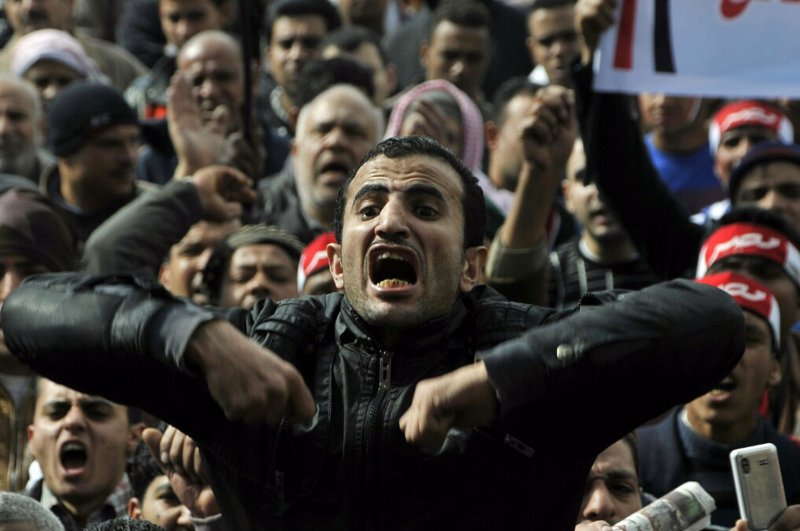WASHINGTON, April 28 (UPI) -- The U.S. Department of State condemned Egypt's continuation of mass trials for members of the Muslim Brotherhood, an organization now deemed a terrorist organization by the Egyptian government.
On Monday, a judge presiding over a mass trial in Minya recommended the death penalty for 683 people Monday, including a Muslim Brotherhood leader.















